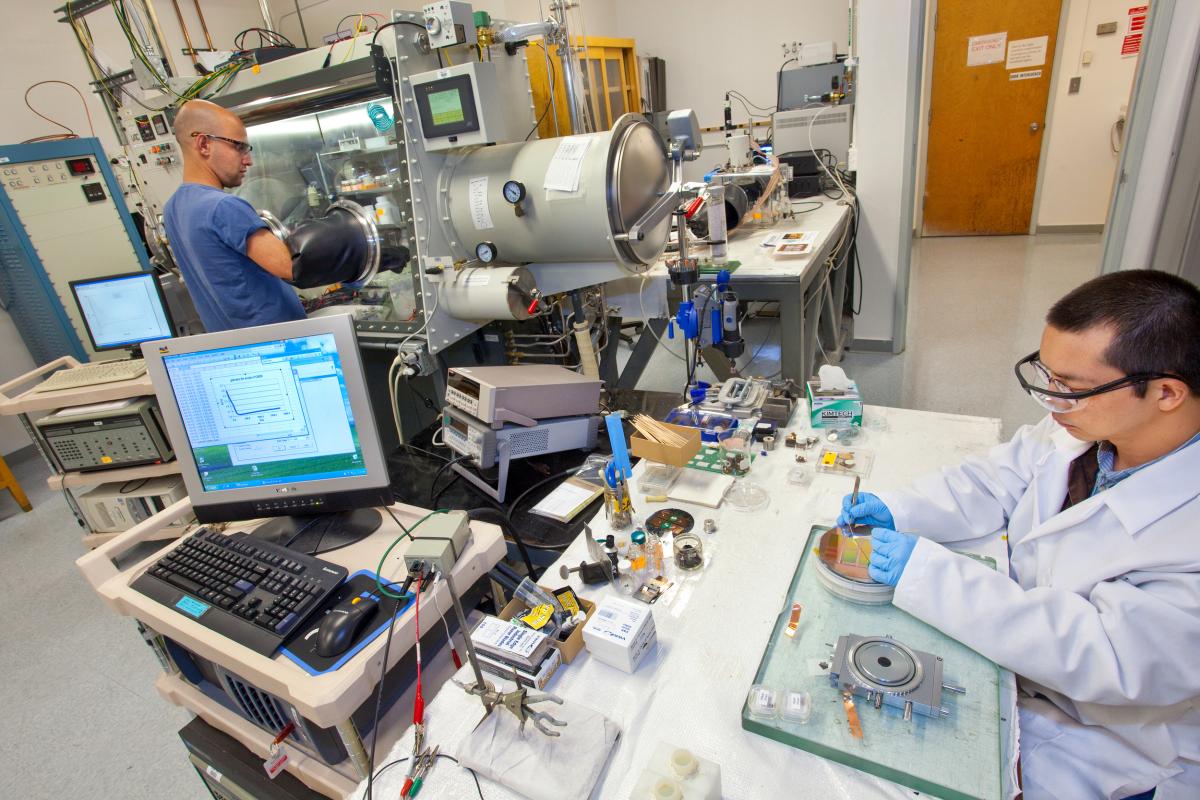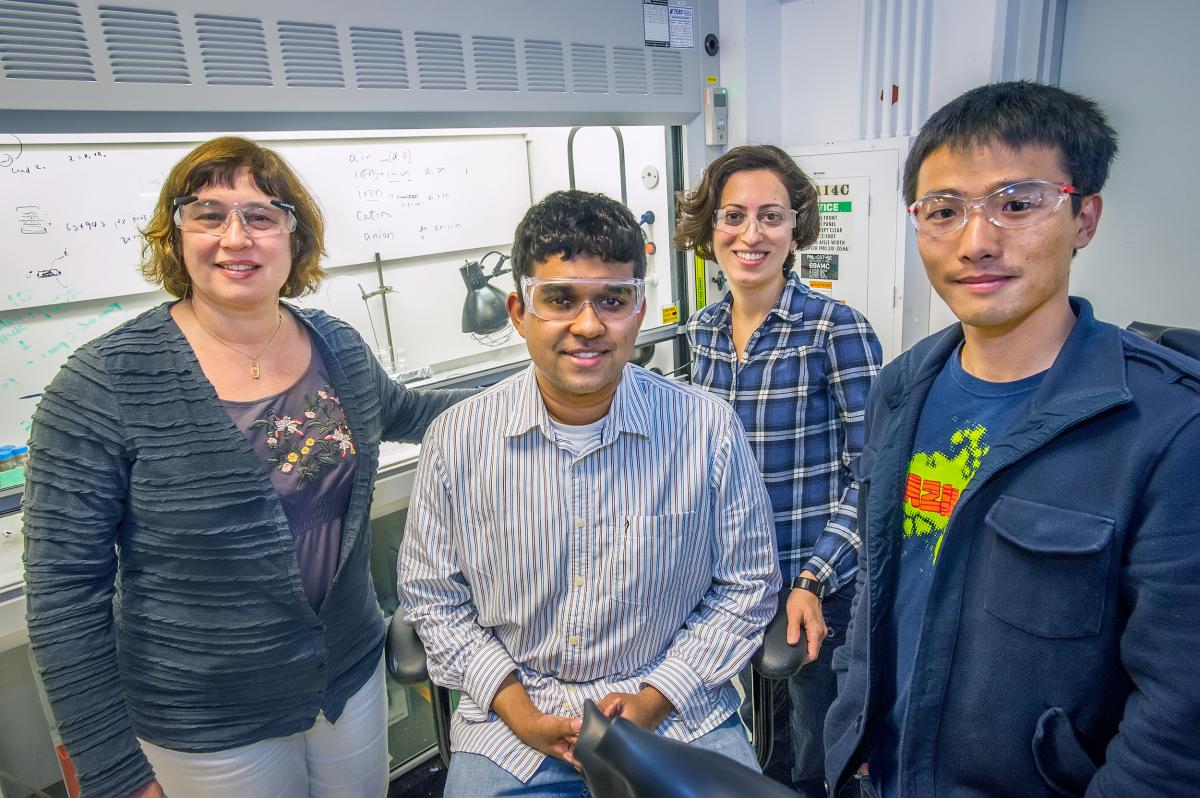Energy Storage
The Energy Storage group conducts innovative research to understand the basic science of next-generation batteries and overcome technological barriers to their adoption.
Advanced Battery Research
An alternative mode of transportation is electricity driven. These battery-based vehicles are becoming more commonplace but are still too expensive for most consumers, can catch fire, or have a life that is less than that of the rest of the vehicle. These issues can be traced to the battery, hence Lawrence Berkeley National Lab (LBNL) is working vigilantly to address them.
The Energy Storage Group at Berkeley has been performing battery research since the inception of the Chemical Engineering Department at UC Berkeley in 1955, led by the one of the founders, Prof. Charles Tobias. The Lab has formerly led a research program for vehicular battery research since 1982. Berkeley has since led the world in development of new material development and battery failure diagnostics since that time.

Today, Li-ion batteries which are based on nickel-cobalt oxides and graphite, dominate the technology landscape. This system has shown the ability to cycle thousands of times with high energy density but suffers from the issues mentioned above. LBNL is working in national lab consortia addressing many of these problems including those focused on critical-material-free, lithium-rich disordered rock salts, solid-state electrolytes, and sodium-based batteries. The Group's key research areas are listed below.
Key Research Areas:
- Fast Charge
- Disordered Rock-Salt Materials
- Low Temperature Electrolytes
- Silicon Anodes
- Advanced Manufacturing of Roll-to-roll Systems
- Solid State Electrolytes and Cells
- Flow Batteries/Low-Cost or Grid-Based Batteries
- Sodium-ion

